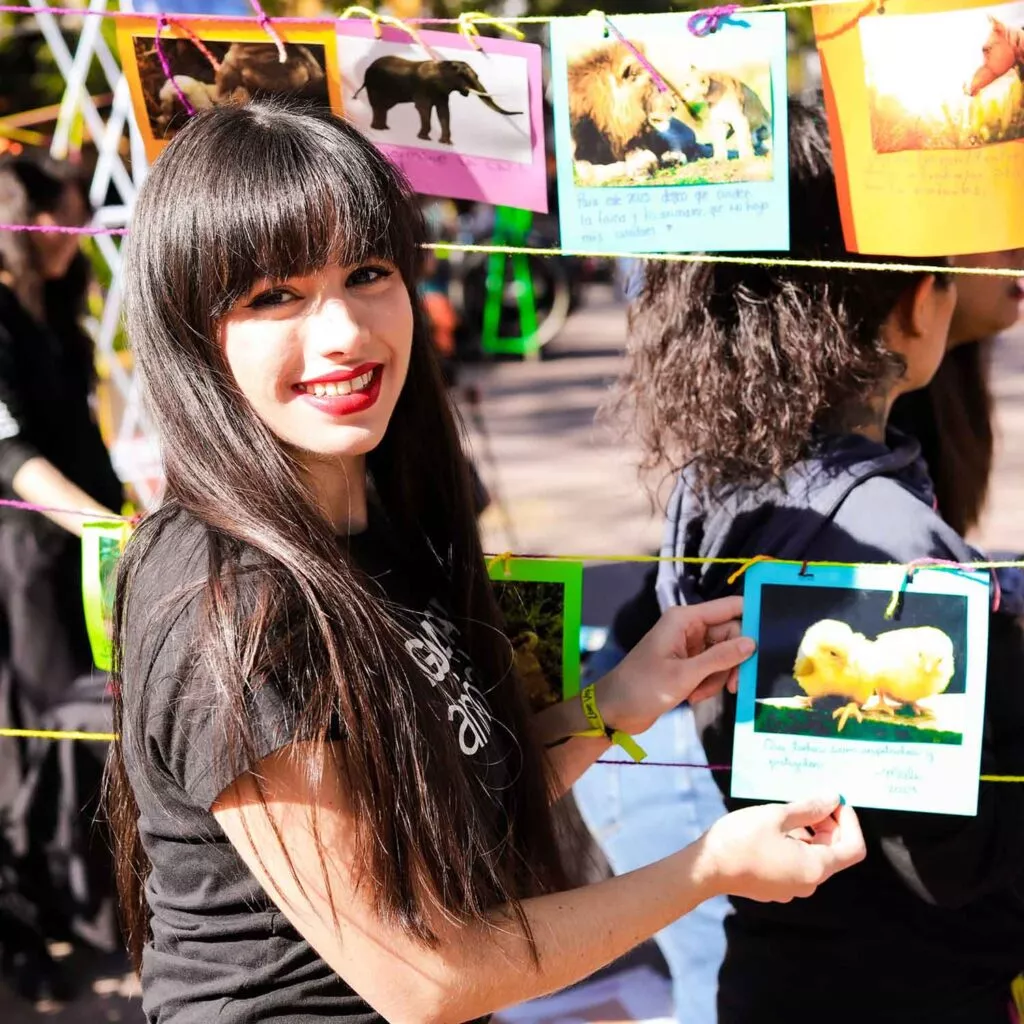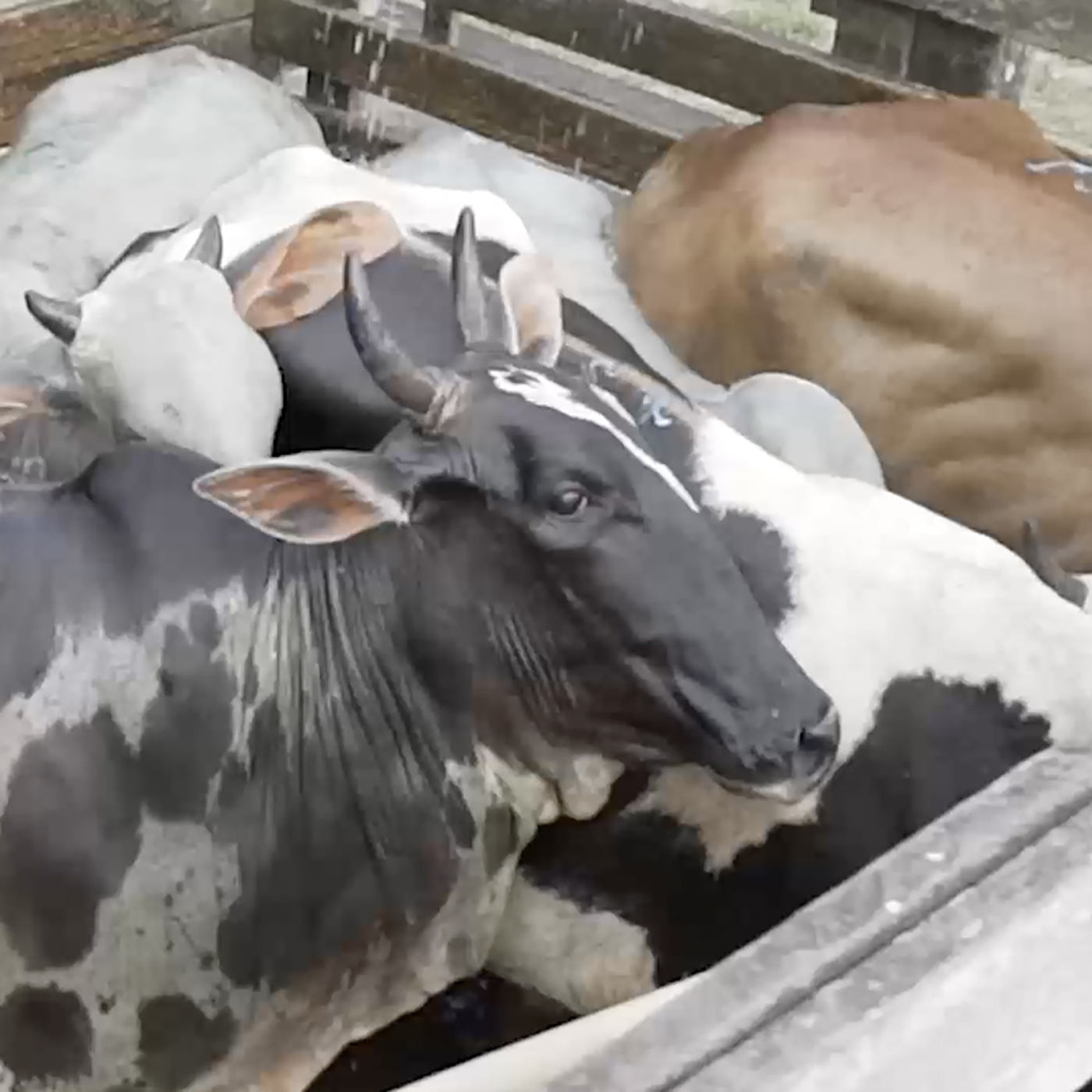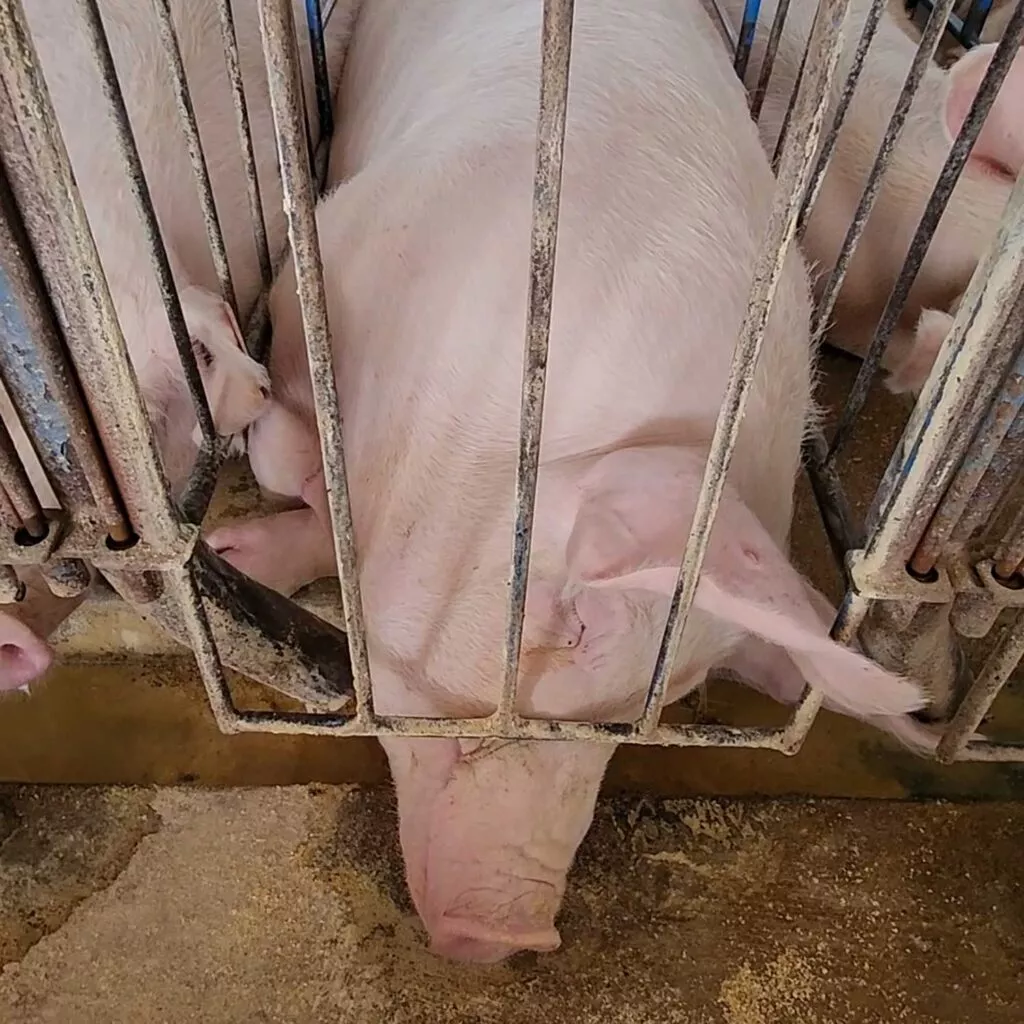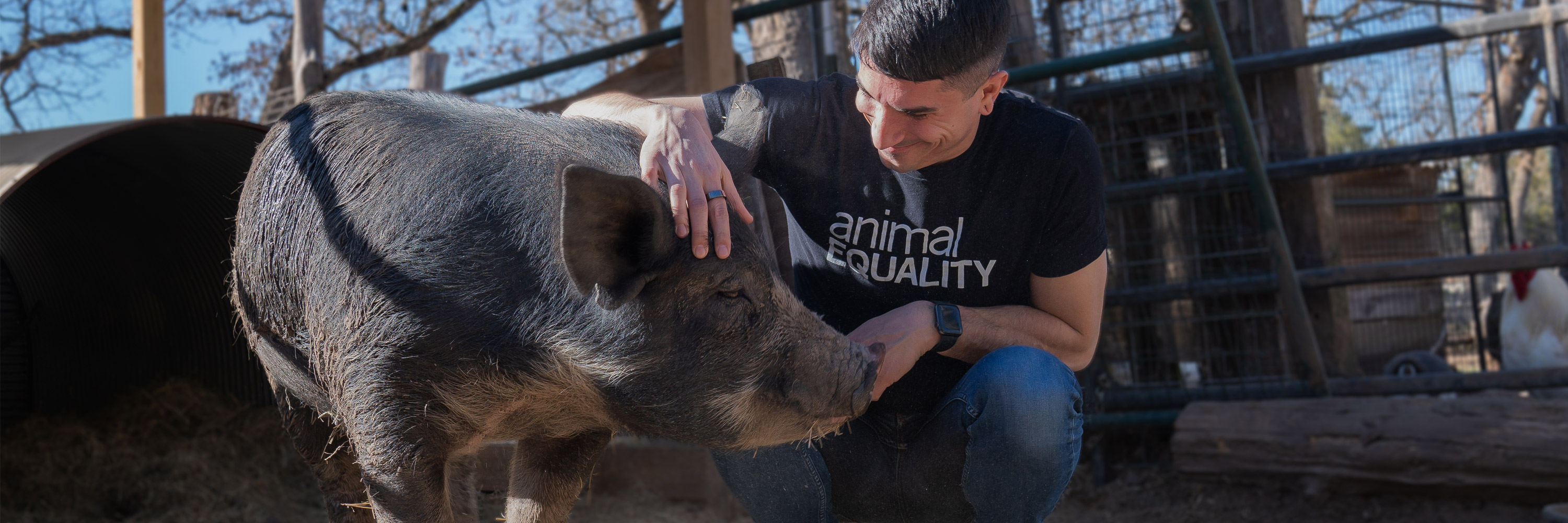
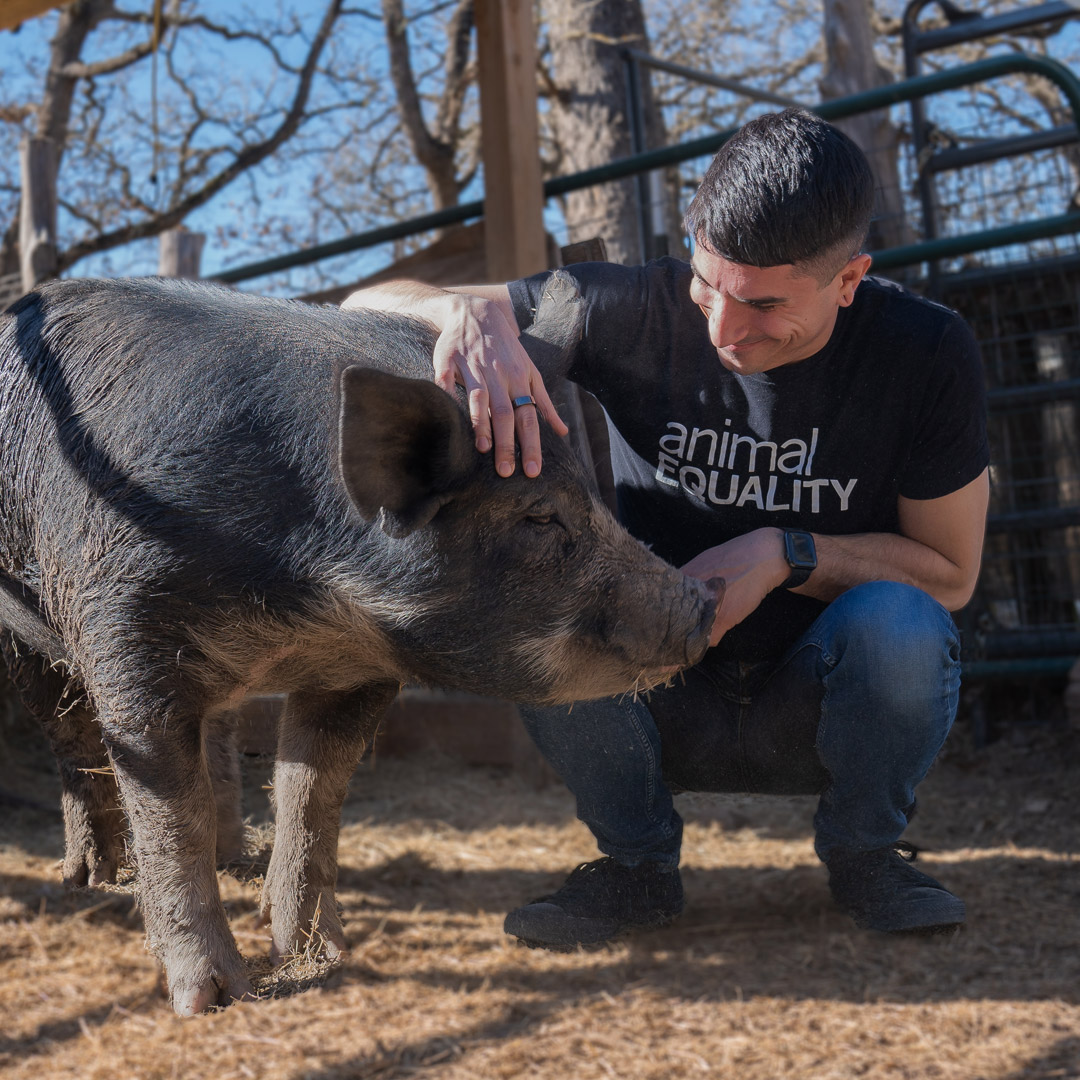
5 ways we’re helping animals in 2022

We made historic progress for animals last year, including banning cages across the European Union and criminalizing animal abuse in Mexico. In 2021, our work impacted an estimated 229 million animals worldwide, including nearly 44 million in the US alone–a tremendous achievement that you helped make happen.
In 2022, we’re committed to doing even more for animals. We have a whole new set of goals that will make a difference for farmed animals this year, and we’re already well on our way to accomplishing them with your continued support.
Over the past 15 years, Animal Equality has achieved groundbreaking victories for animals, including legal reforms that guaranteed welfare protections for farmed animals, investigations that revealed the hidden abuse of the agricultural industry, and efforts that led to the closure of wet markets and slaughterhouses.
But there’s still much work to be done before every animal receives the respect and protection they deserve.
Our ambitious goals for this year will help even more farmed animals by stopping some of the cruelest practices in animal agriculture for good. Here’s a look at our priorities for 2022.
1. End Cruel Confinement for Pigs
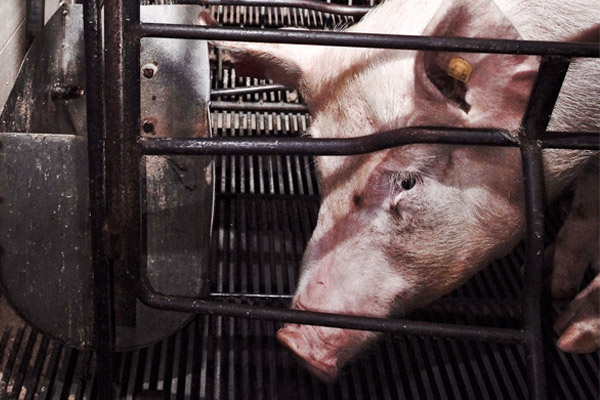
We’re advocating for pigs by targeting the cruel practice of gestation crates, which are narrow metal stalls that confine mother pigs in an area barely larger than the size of their bodies. Nursing mothers cannot turn around or move in these crates, and they’re deprived of any normal interactions with their piglets.
Pigs suffer immensely in this extreme confinement, but thanks to concerted efforts from Animal Equality and a coalition of other organizations, in 2018 California passed Proposition 12. This new law, implemented in 2019, established minimum space requirements for mother pigs, meaning they could no longer be restricted in gestation crates. In 2021, a similar law known as Question 3 passed in Massachusetts that prohibited the inhumane confinement of mother pigs.
This is a critical time to make sure companies are complying with Proposition 12 and Question 3 and eliminating gestation crates. We’re demanding that companies who’ve lapsed on their commitments honor the law and make sure they know they won’t get away with ignoring its requirements. We’re getting the message across to agribusinesses that the writing is on the wall–it’s past time to end the use of gestation crates.
2. Protect Laws for Hens and Pigs
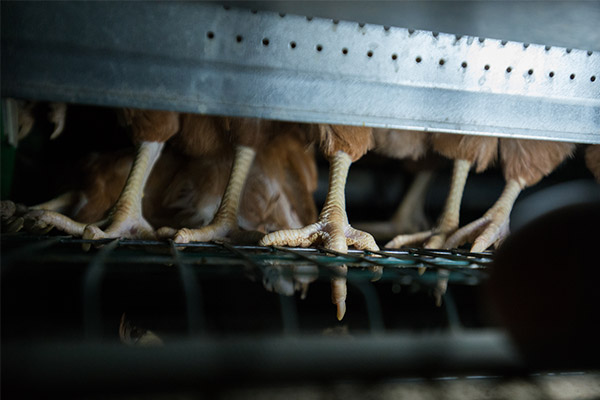
Proposition 12 and Question 3 instituted new requirements for the welfare of hens as well as pigs. Under these laws, egg-laying hens can no longer be kept in tiny cages where they have no room to move or stretch their wings. They must also be given enrichments important for their wellbeing, like nest boxes, perches, and dust-bathing areas. Both Proposition 12 and Question 3 require hens to be cage-free and able to move around the barn, perch, and stretch their wings.
“Laws are only as effective as public officials’ willingness to enforce them. Therefore, our job doesn’t end with getting these laws passed. Regulators in California and Massachusetts need to know we will be watching them to ensure they are actually enforcing these critical protections for hens and pigs once they go fully into effect this year.”
Sarah Hanneken, Legal Advocacy Counsel for Animal Equality
3. End the Killing of Male Chicks By the Egg Industry
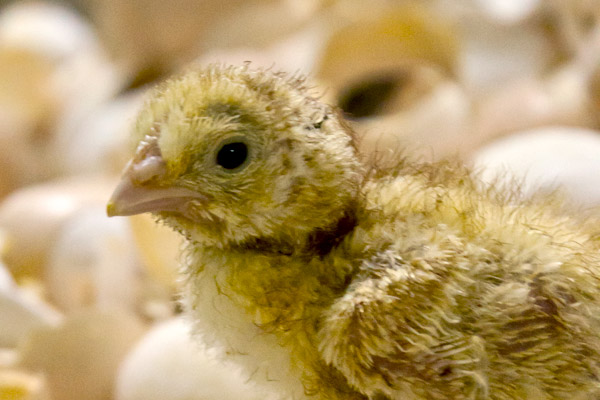
Male chicks are considered “waste products” to the egg industry and are killed in a number of inhumane ways–including being thrown into large macerators to be ground up while still alive. A new technology, called in-ovo sexing, can spare chicks from painful “chick culling” by identifying female and male embryos prior to hatching. We’re working behind the scenes with key retail companies to get them to commit to replacing chick culling with in-ovo sexing technology.
We’re accelerating our efforts in Germany, where chick culling is already banned, to make sure in-ovo sexing is implemented. In Italy, we’re campaigning to get legislation outlawing chick culling fully passed and making sure companies institute policies that comply with bans on culling. In Spain, we’re urging companies to get in-ovo sexing trials started and pave the way for widespread adoption.
4. Improve the Lives of Chickens
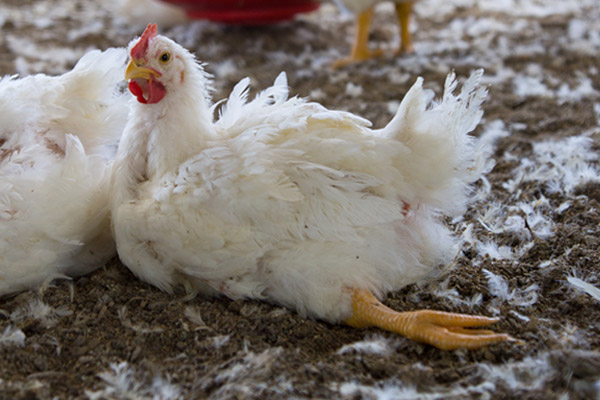
Chickens are the most consumed animals worldwide, and billions of them suffer in horrific conditions. They’re kept in dim, windowless sheds, forced to live in their own waste, and bred to grow so fast that they experience painful leg deformities and heart attacks. In 2022, we’re already making huge advancements in improving welfare for chickens.
We are continuing our work to get new chicken welfare policies published, like the Better Chicken Commitment and the European Chicken Commitment. These policies, which are supported by Animal Equality as well as many other animal advocacy groups, spell out welfare criteria for chickens grown for meat that include more humane slaughter methods, greater environmental standards like better air quality, and the use of breeds that are less likely to experience painful health problems.
We’re pushing companies to sign on to better welfare practices for chickens and publish their own policies that include cage-free and crate-free mandates. Animal Equality’s work in Spain, Italy, and Germany is strongly focusing on chickens to capitalize on the momentum we’ve already achieved by getting companies to commit to better welfare for hens.
5. Ban the Force-feeding of Ducks and Geese
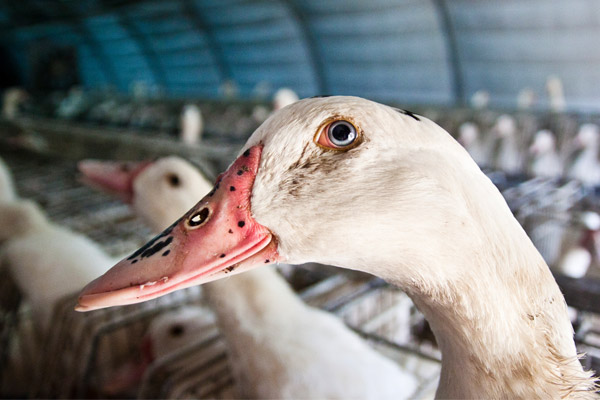
We’re helping ducks and geese in 2022 by ending the cruel practice of force-feeding. Birds are force-fed to produce foie gras, a luxury product made from their fatty, diseased livers and served in upscale restaurants.
Ducks and geese have metal or plastic tubes violently inserted down their throats, and then large amounts of feed are pumped into their stomachs three times daily for weeks. In addition to the distress and pain this practice causes, birds suffer from injuries, infections, ruptured organs, and other excruciating conditions as a result of force-feeding.
We’re taking a multifaceted approach to get force-feeding permanently banned in the US and Europe. In the UK, foie gras production is already banned, but we’re going to make sure it can’t be imported either–ensuring that there’s no market for force-fed products in the country. In the US, we’ve launched a national petition to ban force-feeding, and we’re working on legislation in Portland, Oregon, and the state of Rhode Island to ban the sale and import of foie gras. We’re campaigning in one state after another until force-fed products are prohibited all across the US.
What You Can Do
There’s a lot of work to be done in the upcoming year, and every victory brings us closer to a more compassionate world for animals. But we can only be successful in these efforts with your support. By donating, signing, and sharing our petitions, and spreading awareness about our campaigns you help make all of our achievements possible. If you haven’t already done so, sign up for our newsletter or text alerts to stay up to date on important news.
Together, we are already making 2022 one of the best years yet for animals.
If you want to do even more, you can help animals by leaving them off your plate and choosing plant-based alternatives instead. By making compassionate choices at mealtimes, you save the lives of animals.
Recommended
